Tag Archives: fishing regulations
Why Fairer West Coast Fishing Needs More “Boots on Deck,” According to New Report
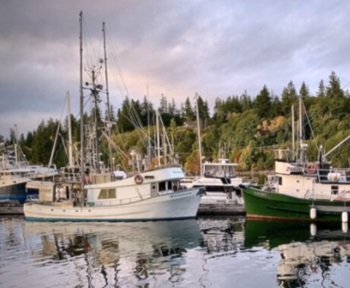 The West Coast fishing industry finds itself in increasingly troubled waters, according to a recent report from the Standing Committee on Fisheries and Oceans (FOPO). The parliamentary committee says unfair regulations and a lack of federal intervention have led to an uneven playing field for BC fishers. Unlike the Maritime provinces, where regulations limit corporate control and prioritize independent harvesters, there are no restrictions on ownership of commercial licenses and quotas on BC’s coast. As a result, owner-operators are often shut out of the process, jeopardizing their ability to make a sustainable living. “Fisheries are the fabric of our coastal communities, and they have been particularly in Indigenous communities for 10 to 15,000 years. Fish in the water are the birthright of all Canadians,” Sonia Strobel, CEO of Skipper Otto Community Supported Fishery, told us in an interview. photos, more, >>click to read<< 07:45
The West Coast fishing industry finds itself in increasingly troubled waters, according to a recent report from the Standing Committee on Fisheries and Oceans (FOPO). The parliamentary committee says unfair regulations and a lack of federal intervention have led to an uneven playing field for BC fishers. Unlike the Maritime provinces, where regulations limit corporate control and prioritize independent harvesters, there are no restrictions on ownership of commercial licenses and quotas on BC’s coast. As a result, owner-operators are often shut out of the process, jeopardizing their ability to make a sustainable living. “Fisheries are the fabric of our coastal communities, and they have been particularly in Indigenous communities for 10 to 15,000 years. Fish in the water are the birthright of all Canadians,” Sonia Strobel, CEO of Skipper Otto Community Supported Fishery, told us in an interview. photos, more, >>click to read<< 07:45
Sens. Murphy and Blumenthal propose bill linking commercial fishing and climate change
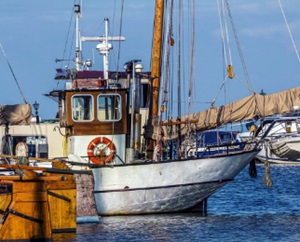 Connecticut’s U.S. Senators Chris Murphy and Richard Blumenthal have teamed with their Massachusetts colleague Elizabeth Warren on a new bill designed to update Atlantic Coast commercial fishing as it relates to climate change. The Supporting Healthy Interstate Fisheries in Transition (SHIFT) Act would require the Department of Commerce to consider the changing geographic ranges of fish populations as it oversees federal fishery management plans and quota allocations for Atlantic states. The senators stated restrictions on the species and number of fish that can be caught in Atlantic waters need to be updated because fish locations have changed in response to warming ocean temperatures and climate change. more, >>click to read<< 08:01
Connecticut’s U.S. Senators Chris Murphy and Richard Blumenthal have teamed with their Massachusetts colleague Elizabeth Warren on a new bill designed to update Atlantic Coast commercial fishing as it relates to climate change. The Supporting Healthy Interstate Fisheries in Transition (SHIFT) Act would require the Department of Commerce to consider the changing geographic ranges of fish populations as it oversees federal fishery management plans and quota allocations for Atlantic states. The senators stated restrictions on the species and number of fish that can be caught in Atlantic waters need to be updated because fish locations have changed in response to warming ocean temperatures and climate change. more, >>click to read<< 08:01
Gloucester: During protest in harbor, fishermen say fish rules need more leeway
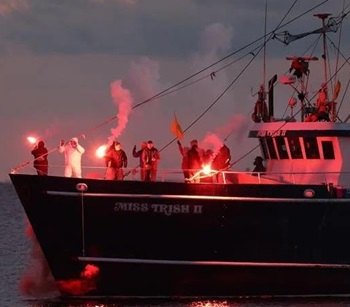 More than 50 people, including fishermen, their families and supporters, stood along Stacy Boulevard in the cold at dusk Wednesday to watch the 96-foot dragger F/V Miss Trish II steam into the Outer Harbor with its crew waving flares in a protest. A couple of smaller fishing vessels followed. The short and peaceful protest was called by Russo, after two trips this fall during which the Massachusetts Environmental Police allege a small percentage of the vessel’s catch was below minimum size, despite, he says, taking steps to follow the rules, including using at-sea monitors and installing cameras on the vessel for a second trip. Russo’s father and owner of the Miss Trish II, Capt. Enzo Russo, and some of the Miss Trish II crew stood along the boulevard in support. “And now the law says we’ve got 100% observers the whole time,” Enzo Russo said. 7 Photos, more, >>click to read<< 10:05
More than 50 people, including fishermen, their families and supporters, stood along Stacy Boulevard in the cold at dusk Wednesday to watch the 96-foot dragger F/V Miss Trish II steam into the Outer Harbor with its crew waving flares in a protest. A couple of smaller fishing vessels followed. The short and peaceful protest was called by Russo, after two trips this fall during which the Massachusetts Environmental Police allege a small percentage of the vessel’s catch was below minimum size, despite, he says, taking steps to follow the rules, including using at-sea monitors and installing cameras on the vessel for a second trip. Russo’s father and owner of the Miss Trish II, Capt. Enzo Russo, and some of the Miss Trish II crew stood along the boulevard in support. “And now the law says we’ve got 100% observers the whole time,” Enzo Russo said. 7 Photos, more, >>click to read<< 10:05
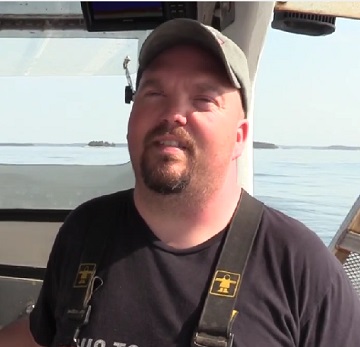
Maine Lobstermen speak out about economic and regulatory struggles
“We get told what we’re going to get paid for the product, and we get told what we’re going to be charged for the bait. We’re the ones providing, and it seems as though we’re also getting the short end of the stick,” said commercial lobsterman Dwight Staples. With rising inflation, fisherman say they’ve been hit hard. “For me personally, it was like $800 a day just to go fishing — and that was on like a three dollar lobster. So you’ve got to go, and you’ve got to catch over 250 pounds before you even break expense,” said Staples. In addition to the rising costs of running a lobster fishing business, lobstermen say that fishing regulations have made it more difficult to turn a profit, even when reeling in a good haul. Video, >click to read< 09:07
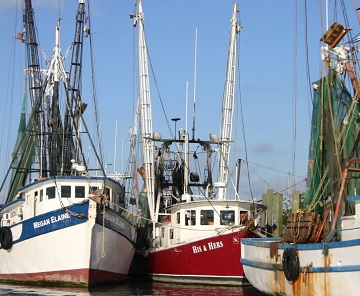
Louisiana denounces federal rule for shrimp boats at Fifth Circuit
The small shellfish are big business in Louisiana with 15,000 residents employed in the industry, which has an annual economic impact of $1.3 billion for the state, according to its Seafood Promotion and Marketing Board. But Louisiana shrimpers who followed their fathers and grandfathers into the trade say it is dying as wild-caught and farm-raised imports from Thailand, Vietnam, Indonesia and India into the U.S. have exceeded 1 billion pounds annually in recent years. Since 1987, the National Marine Fisheries Service has required shrimp trawlers in some circumstances to install turtle excluder devices, which separate sea turtles, sharks and other large bycatch so they can escape through an opening in the netting. >click to read< 09:52
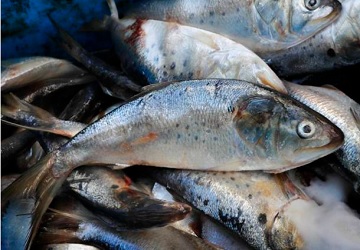
Virginia Regulators to Consider Changes to Menhaden Fishing Regulations
Virginia regulators will consider changes to commercial menhaden fishing in the Chesapeake Bay following requests from recreational anglers to put an end to the fishery. The proposals follow repeated requests from the Virginia Saltwater Sportfishing Association to stop menhaden fishing in the Bay, including a petition of 11,000 signatures that was presented to the office of Republican Gov. Glenn Youngkin earlier this year. Reedville-based Omega Protein, the lone player in the Bay’s menhaden reduction fishery, which processes catches into fishmeal or fish oil, says the new regulations take away available fishing grounds that include uninhabited areas. Taking operations completely out of the Bay into less safe conditions in the ocean would ultimately force the company to stop operating. >click to read< 11:51

Fishermen urge Oregon Fish and Wildlife Commission to revisit regulations
Several local commercial fishermen have asked the Oregon Fish and Wildlife Commission to reconsider Columbia River fishing regulations. During the public forum section of the commission’s meeting in Astoria on Friday, commercial fishermen and those connected with the industry asked the commission to revisit gillnetting regulations and salmon buyback options. Jim Coleman, a fisherman from St. Helens, asked commissioners to add gillnetting to a future agenda or to work with Washington state to ensure the option of a 6-inch gillnet in the fall. “The gillnet-caught Copper River King salmon is flown from Alaska to Seattle on a chartered jet with great fanfare, demanding $70 to $80 a pound, while commercial fishing on the Columbia River is a political football,” >click to read< 12:18
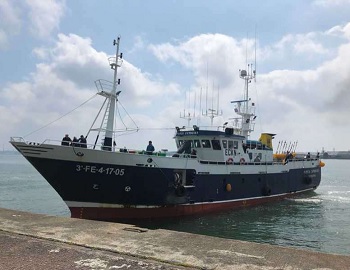
Spanish trawler captain to appear in Cork court
A Spanish fishing captain is due to appear before a court in County Cork this morning on charges relating to alleged breaches of fishing regulations. The Irish Naval vessel LÉ Róisín detained the Punta Candieira 95 nautical miles off the Cork coast on Monday. The vessel is from Galicia in Spain and using the long line fishing method to catch hake. The Naval Service said that the arrest, the fifth this year,,, >click to read< 08:34
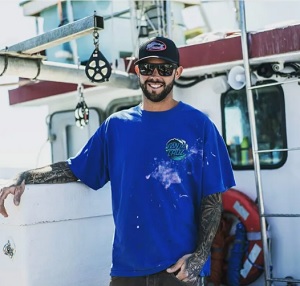
Local Dungeness crab fishermen oppose new fish and wildlife regulations
The regulations are a product of concerns surrounding how often whales and other endangered species are getting caught in the ropes used to fish crabs. The regulations were met with some resistance from the local fishing community. However, conservationists argue the rules will do more good than harm to wildlife. Tim Obert, a fisherman, strongly opposes,,, “You’re driving down the street and you accidentally run over a squirrel or maybe you hit a deer on a mountain road, it doesn’t mean you go park your car in the garage and never turn it on again or never leave your house,” he said. Ben Platt, the President of the California Coast Crab Association, also opposes the regulations,,, >click to read< 08:13
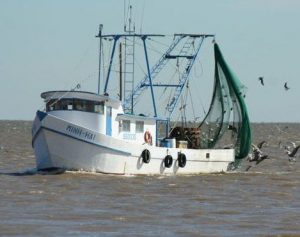
North Carolina halting flounder fishing Sept. 4; denies shrimping petition
The N.C. Fisheries Commission last week voted to deny a petition for rulemaking that, if implemented, would impact the state’s shrimp trawl fishery. As a result, the Marine Fisheries Commission directed the division to consider elements of the petition in an upcoming amendment to the N.C. Shrimp Fishery Management Plan. >click to read< 09:45
A Conversation with Working Watermen Commission Chair Steve House on the Future of Flounder – How does the passage of Amendment 2 affect the Outer Banks, and how soon will potential impacts occur?,,, It will trickle down from the commercial fishermen, to the fish houses, to the servers and restaurants, and even to the consumers. >click to read<
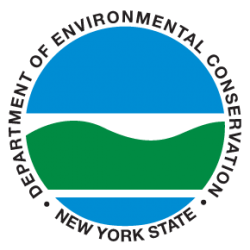
New York State Department of Environmental Conservation Announces Emergency Regulations for Scup
Increased Possession Limit Will Benefit New York Commercial Fishing Industry The New York State Department of Environmental Conservation (DEC) adopted emergency regulations, effective immediately, to increase the incidental possession limit for the commercial scup fishery from 200 to 2,000 pounds through June 15. This exemption allows commercial harvesters in the small-mesh squid fishery to keep and sell more scup, resulting in increased income for commercial harvesters. The rule change will also reduce waste in the fishery by preventing dead scup from being discarded overboard due to the prior lower harvest limit. >click to read<11:37

North Carolina – Reforms would rebuild depleted fish stocks
A former director of the N.C. Division of Marine Fisheries asked a local wildlife group last week to seek state lawmakers’ support for three proposed fishing regulations aimed at rebuilding depleted fish stocks. Louis Daniel, who spent more than two decades with the N.C. Division of Marine Fisheries and was director of the division for 10 years, told the Albemarle Conservation and Wildlife Chapter in Elizabeth City Thursday that current regulations have not done enough to protect fish species such as southern flounder. >click to read<09:45
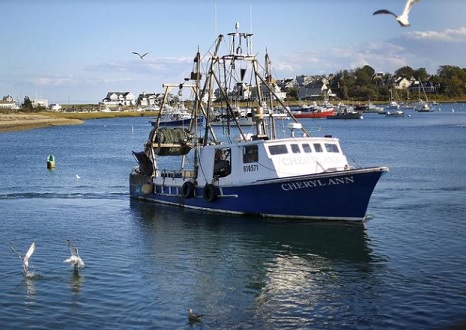
Scituate’s four remaining federal fishermen. Its time to revolt!
Jefferson Airplane – Volunteers (with Lyric) right click – Kevin Norton, Phil Lynch, Tom Bell and the Gustafson family operate five boats between them, down from 17 boats a decade ago and dozens 40 years ago. The decline, the fishermen say, is due to the massive influx of new fishing regulations over the years, coupled with recent changes in state and federal laws that make it nearly impossible for a new generation of fishermen to break into the industry. As a result, the five remaining boats could be the last to call Scituate home and the town’s once-rich maritime industry will be lost forever, they say. “If we don’t do something to change in the next year or so, we’re going to lose all the fishing boats in town,” Norton, who captains Miss Emily, said. “This harbor supports a lot of families, and that could go away really soon. >click to read<

FISH-NL – Inshore harvesters and aboriginals should have to abide by same fishing regulations
The Federation of Independent Sea Harvesters of Newfoundland and Labrador (FISH-NL) says two sets of commercial fishing rules for aboriginal versus non-aboriginal harvesters are creating an unfair playing field on the northwest Atlantic. “Aboriginal harvesters do not have to follow the same regulations as other commercial harvesters when they’re fishing the same fish, side by side at the same time ,” says Ryan Cleary, President of FISH-NL. “That’s not only unfair, but it creates a competitive advantage for aboriginal harvesters and breeds division.” >click to read<11:22
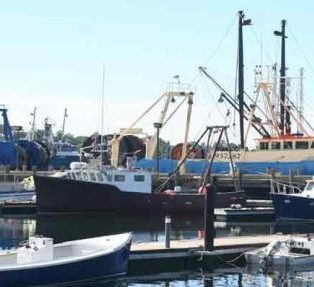
Northeast Multispecies 2018-2020 Groundfish Catch Limits, Quota allocations for 17 of 19 sectors, Northern Gulf of Maine Scallop Area
Through Framework 57, we have set catch limits for 20 groundfish stocks for the 2018-2020 fishing years (May 1, 2018-April 30, 2020), including the 3 stocks managed jointly with Canada.>click to read< NOAA Fisheries is allocating 2018 quotas to 17 of 19 groundfish sectors based on catch limits approved in Framework 57 to the Northeast Multispecies Fishery Management Plan. >click to read< NOAA Fisheries is closing the Northern Gulf of Maine Scallop Management Area to all federally permitted Limited Access General Category scallop vessels effective 0001 hr, on May 2, 2018. >click to read<17:29

2018 Mass. DMF fishing regulations go into effect April 20
The Division of Marine Fisheries (DMF) has enacted new regulations, which were informed in part by this winter’s public hearings. The regulations were reviewed and approved by the Marine Fisheries Advisory Commission at its March 15 meeting, and go into effect on April 20. The most substantive change is an adjustment to the open commercial fishing days for black sea bass. The new open commercial fishing days are Sundays, Tuesdays, and Thursdays.,, The commercial black sea bass season will begin on Tuesday, July 10.,, During the inshore small-mesh trawl squid fishery, April 23–June 9, trawlers will be allowed to retain a 50-pound bycatch limit of black sea bass. >click to read<18:00
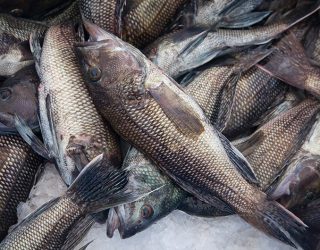
Proposed 2018 regulations on black sea bass and other commercially targeted fish covered at DMF public hearing.
With no proposed changes in conch fishing regulations on the agenda, the annual Division of Marine Fisheries (DMF) winter public hearing on proposed regulations was a relatively collegial gathering. A baker’s dozen of Island fishermen and stakeholders gathered at the Katharine Cornell Theater on Monday morning to weigh in on the potential changes the DMF is looking to implement in 2018. The main topic of conversation was changes to regulations for the commercial black sea bass fishery. >click to read< 19:00
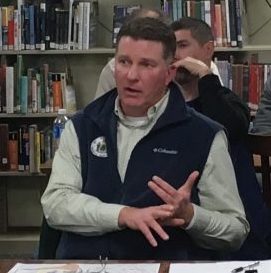
Maine: Keliher calls special meeting to discuss trawl limit proposal
When members of a lobster management council here voted last month to change the maximum allowed number of traps on a trawl in part of the territory they represent, they thought they were off and running and a public hearing for a new Department of Marine Resources proposed rule reflecting the change would be scheduled soon. They learned different at a special Zone B Council meeting Dec. 20 at Mount Desert Island High School called by DMR Commissioner Patrick Keliher to discuss the issue. click here to read the story 10:58 
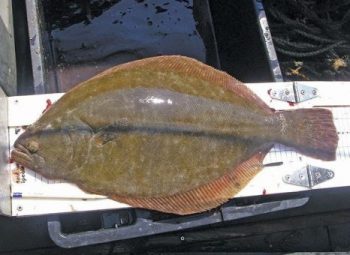
Trump official’s flounder ruling clouds Atlantic coast fish conservation
No one considers summer flounder an iconic Bay species. But fishery managers and conservationists say the ripple effect of a controversial Trump administration decision to let more “fluke” be caught in New Jersey may impact how important species such as striped bass and menhaden are managed in the Chesapeake. In the wake of an unprecedented decision by the U.S. Department of Commerce, some in Maryland are already calling on fishery managers to challenge how coastwide fishing restrictions are implemented in the Bay. The concern stems from a July ruling by Commerce Secretary Wilbur Ross that allowed New Jersey to reject harvest limits accepted by all other East Coast fishery managers, which were aimed at stemming a seven-year decline in the summer flounder population. In recent decades, states had appealed similar harvest cutbacks ordered by the Atlantic States Marine Fisheries Commission 22 times. Never before had the commerce secretary overturned a decision by the interstate panel. click here to read the story 08:47
Effective fishing regulations benefit all Floridians by Edward Gaw, president, HI-LINER Fishing Gear Inc.,
 I often read Bob McNally’s outdoors columns and am frequently informed and entertained. However, a recent piece, “Why are Spotted Seatrout not Gamefish?,” left me scratching my head. To be clear, we are both in agreement that gamefish status for this species needs due and complete consideration and public debate. My exception begins and ends with his assault on commercial fishing. Here at HI-LINER we have a unique division of supply to both the recreational and commercial sectors. We remain sensitive to arguments on both sides of the water. It is our humble perspective that demonizing any fisherman runs counter to our mission. click here to read the op-ed 13:56
I often read Bob McNally’s outdoors columns and am frequently informed and entertained. However, a recent piece, “Why are Spotted Seatrout not Gamefish?,” left me scratching my head. To be clear, we are both in agreement that gamefish status for this species needs due and complete consideration and public debate. My exception begins and ends with his assault on commercial fishing. Here at HI-LINER we have a unique division of supply to both the recreational and commercial sectors. We remain sensitive to arguments on both sides of the water. It is our humble perspective that demonizing any fisherman runs counter to our mission. click here to read the op-ed 13:56
LDWC approves fishing regulations out to 9-mile limit
 Recreational and commercial fishermen will have no changes in daily nor sized limits and the state will not alter current federal commercial fishing regulations on the use of gear in state waters out to nine miles. The one-year rule pushing state boundary waters out to nine nautical miles from the state’s wildly meandering coastline was given Congressional approval in December. In some cases, state laws governing gear use by commercial fisheries were more strict than federal laws. Thursday, during the state Wildlife and Fisheries Commission’s monthly meeting, the LDWC unanimously approved a resolution to apply state recreational regulations and retain federal commercial fishing regulations out to the nine-mile limit. Read the rest here 07:41
Recreational and commercial fishermen will have no changes in daily nor sized limits and the state will not alter current federal commercial fishing regulations on the use of gear in state waters out to nine miles. The one-year rule pushing state boundary waters out to nine nautical miles from the state’s wildly meandering coastline was given Congressional approval in December. In some cases, state laws governing gear use by commercial fisheries were more strict than federal laws. Thursday, during the state Wildlife and Fisheries Commission’s monthly meeting, the LDWC unanimously approved a resolution to apply state recreational regulations and retain federal commercial fishing regulations out to the nine-mile limit. Read the rest here 07:41
Will the Fish Rot in the Hold? – Our View: One more fault with fishing rules
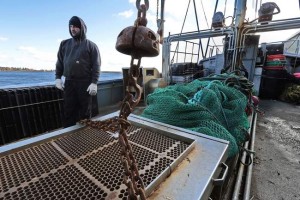 Fishing vessels tied up in New Bedford but not allowed to unload part of their catch this week suggest one more weakness in our fishing regulations that is ripe for remedy. State environmental regulations allow a boat carrying fish to an out-of-state port to land fish in Massachusetts when injured crew or severe mechanical issues force the decision. Foul weather, apparently, is not part of the equation. Unfortunately for seven vessels — three home-ported here and four from North Carolina — Read the op-ed here 08:44
Fishing vessels tied up in New Bedford but not allowed to unload part of their catch this week suggest one more weakness in our fishing regulations that is ripe for remedy. State environmental regulations allow a boat carrying fish to an out-of-state port to land fish in Massachusetts when injured crew or severe mechanical issues force the decision. Foul weather, apparently, is not part of the equation. Unfortunately for seven vessels — three home-ported here and four from North Carolina — Read the op-ed here 08:44
Jolly moves to eliminate guesswork from fishing regulations with third party data collection
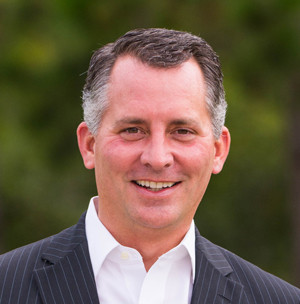 “It’s all about the numbers,” said Jolly, a Dunedin native who has taken a particular interest in fisheries issues. “Without good data, you can’t make good decisions.” Jolly, a Republican, represents Florida’s 13th Congressional District which covers most of Pinellas County. First elected in March 2014, Jolly quickly recognized the importance of both commercial and recreational fishing to the region’s economy. His plan for a third-party data collection system for sn was included in the recent budget deal signed by President Barack Obama. Read the article here 12:15
“It’s all about the numbers,” said Jolly, a Dunedin native who has taken a particular interest in fisheries issues. “Without good data, you can’t make good decisions.” Jolly, a Republican, represents Florida’s 13th Congressional District which covers most of Pinellas County. First elected in March 2014, Jolly quickly recognized the importance of both commercial and recreational fishing to the region’s economy. His plan for a third-party data collection system for sn was included in the recent budget deal signed by President Barack Obama. Read the article here 12:15

Senator Ayotte Challenges NOAA regional administrator John Bullard over fishing regulation’s.
Fishermen aired grievances face to face with federal officials they say are ruining their industry, backed in person by U.S. Senator Kelly Ayotte, R-N.H., who arranged the meeting at Pease Tradeport Friday. Ayotte backed fishermen, telling Bullard that the regulations fly in the face of federal law. She said the Magnuson-Stevens Act which sets parameters for fishery management requires NOAA balance the fisheries’ health with the welfare of fishing communities. Read the rest here 14:09
OUR VIEW: Let’s make waves with fishing regulations
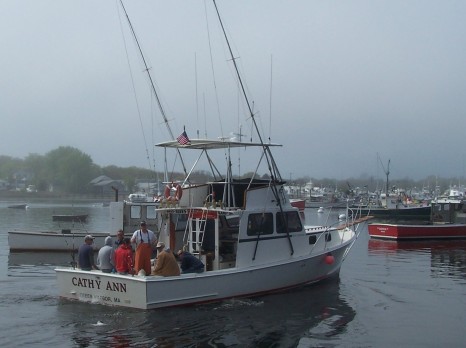
Just when it seems life can’t get harder for local fishermen, the state Division of Marine Fisheries releases another statement. The state division recently announced that the federal regulations implemented in November to restrict will remain in place for at least another year. Looks like another year of eating haddock for us. Looks like another year of hardship for the people in the fishing industry. Read the rest here 07:40
It takes fish to make fish – Larry Engel
 The uptick in silvers to the Mat-Su is part of what we on the Matanuska-Susitna Borough Fish and Wildlife Commission were asking for last February when we took our plea to the Alaska Board of Fisheries, the state’s highest fisheries regulating board. In February, by a vote of 7 to 0, the Board of Fisheries agreed on changes to commercial fishing regulations for the drift gillnet fleet in Upper Cook Inlet. Read the rest here 13:44
The uptick in silvers to the Mat-Su is part of what we on the Matanuska-Susitna Borough Fish and Wildlife Commission were asking for last February when we took our plea to the Alaska Board of Fisheries, the state’s highest fisheries regulating board. In February, by a vote of 7 to 0, the Board of Fisheries agreed on changes to commercial fishing regulations for the drift gillnet fleet in Upper Cook Inlet. Read the rest here 13:44
Few waters contain a more baffling hodgepodge of fishing rules than the Florida Keys
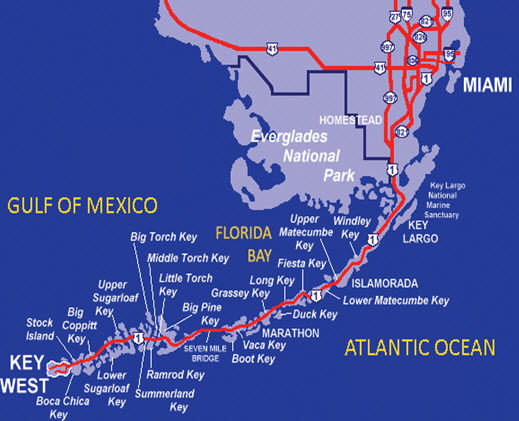 Recreational and commercial fishing in South Florida waters falls under the jurisdiction of three government agencies: The federal South Atlantic Fishery Management Council and the Gulf of Mexico Fishery Management Council, and the state FWC. Then toss in rules for the Florida Keys National Marine Sanctuary, Everglades National Park, Biscayne National Park, national wildlife areas and species-specific closed areas. @keysnet
Recreational and commercial fishing in South Florida waters falls under the jurisdiction of three government agencies: The federal South Atlantic Fishery Management Council and the Gulf of Mexico Fishery Management Council, and the state FWC. Then toss in rules for the Florida Keys National Marine Sanctuary, Everglades National Park, Biscayne National Park, national wildlife areas and species-specific closed areas. @keysnet






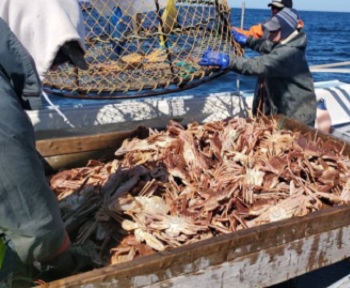





























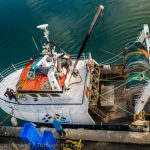



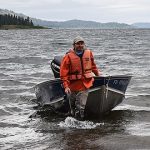

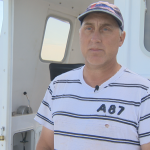
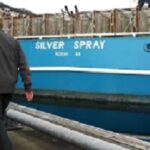





NMFS Seeks Public Comment for Proposed Rule to Require Turtle Excluder Device Use for Skimmer Trawls, Pusher-Head Trawls, and Wing Nets (Butterfly Trawls)
FisheriesNMFS is seeking comments on a newly proposed rule. The rule, if implemented, would require all skimmer trawls, pusher-head trawls, and wing nets (butterfly trawls) to use turtle excluder devices (TEDs) in their nets. A TED is a device that allows sea turtles to escape from trawl nets. The purpose of the proposed rule is to aid in the protection and recovery of listed sea turtle populations by reducing incidental bycatch and mortality of sea turtles in the southeastern U.S. shrimp fisheries. We have scheduled six public hearings in January 2017 to solicit public comment on the proposed rule. The dates, times, and locations of the hearings are as follows: Larose, LA – January 9, 2017, 4pm-6pm, Larose Regional Park and Civic Center, 307 East 5th Street, Larose, LA 70373. Gretna, LA – January 10, 2017, 12pm-2pm, Belle Chasse, LA – January 10, 2017, 4pm-6pm Biloxi, MS – January 11, 2017, 4pm-6pm, Bayou La Batre, AL – January 12, 2017, 10am-12pm Morehead City, NC – January 18, 2017, 12pm-2pm Read the bulletin here 09:33Share this post